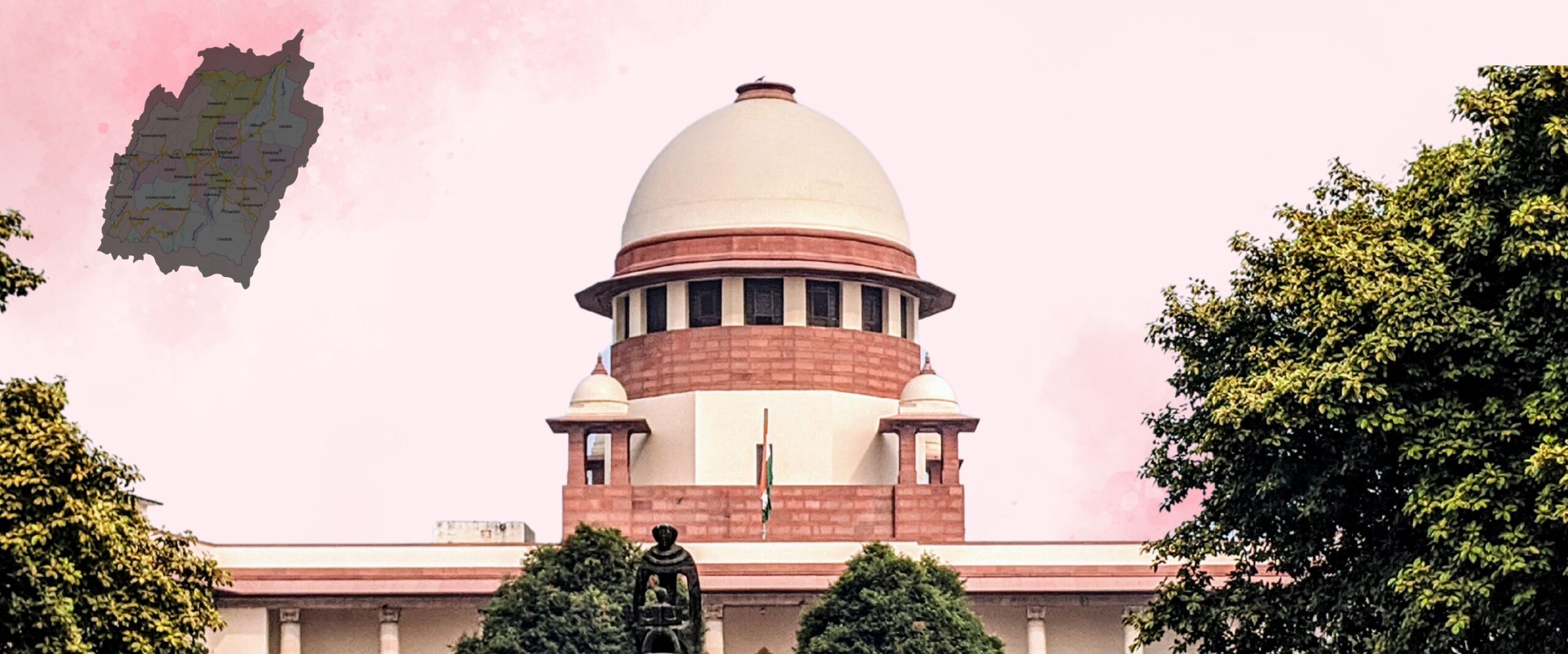Analysis
Supreme Court accepts Expert Committee’s recommendations to improve conditions of displaced persons in Manipur
The CJI-led bench also directed the Manipur Bar Association to ensure that lawyers belonging to all communities can safely appear in courts

The Supreme Court on Monday passed multiple directions based on reports submitted by the expert committee in Manipur. The Expert Committee was set up by the Supreme Court to oversee humanitarian aspects in Manipur.
It is currently led by retired Justice Gita Mittal from the Jammu and Kashmir High Court. Senior Advocate Vibha Makhija appeared on behalf of the expert committee.
Supreme Court: Issue Aadhar Cards, disability certificates and bank details of displaced persons
Makhija stated that many displaced persons, residing in relief camps, lost their Aadhar Cards after the violence began. The committee recommended that documents be issued expeditiously. One of the respondents argued that “illegal immigrants” residing in relief camps would also get the benefit of an Aadhar card if the expert committee’s suggestion was accepted. The Bench, led by Chief Justice D.Y. Chandrachud with Justices J.B. Pardiwala and Manoj Misra, directed that the Unique Identification Authority of India (UIDAI) issue Aadhar cards for displaced persons after a verification process. The verification process will be carried out by cross-checking existing biometric details with the details of the displaced persons.
Makhija then requested the Court to direct the Secretary from the Department of Finance to provide “details of bank accounts held by displaced persons to them”. Further, she requested that the Secretary of the Department of Health issue disability certificates to disabled persons residing in the relief camps.
Pursuantly, the Bench made the following Order, “The Secretary in the Department of Finance in the State of Manipur shall issue appropriate instructions to all banks in the affected parts of Manipur to make available the details of the bank accounts held by displaced persons to the displaced individual concerned. The Secretary, Department of Health, Manipur shall take all expeditious steps for issuing duplicates of disability certificates in accordance with the law to specially-abled persons in relief camps.”
Makhija: No Nodal Officers for displaced persons residing outside Manipur
Makhija contended that displaced persons who have fled outside Manipur do not have a nodal officer. The Chief observed that it was logistically complex to appoint nodal officers in each state where displaced persons are residing. The Chief found it prudent to appoint a single nodal officer instead and directed the Union of India and the Ministry of Home Affairs to appoint a nodal officer based in Delhi. This officer will “guide petitions and complaints and direct the grievance of such persons through the appropriate channel”.
Makhija: Shortage of secretaries in the District Legal Service Authorities
Makhija submitted that “there is a paucity of secretaries” at the district level of the legal service authorities with only nine out of 16 authorities functioning. The Advocate General of Manipur, Lenin Singh Hijam, submitted that the nine districts are the only “judicial districts” in Manipur which cover the entirety of the 16 districts. The Chief Justice, noting Hijam’s inputs, directed that additional paralegal volunteers be appointed in these districts if necessary.
Supreme Court: Lawyers from all communities should appear before the Courts in Manipur
The Bench cautioned the Manipur Bar Association that all lawyers—irrespective of their communities—should not be denied access to courts in Manipur. The Bench also directed that video conferencing facilities should be made available in all courts, including the district legal service authorities. The Court issued a warning that any violation of these directions would be considered contempt of court.
Solicitor General Mehta argued that the Bench made these directions on the basis of “irresponsible statements”. Mehta was referring to arguments made by Senior Advocate Anand Grover who contended that the Manipur High Court was not functioning and lawyers were facing threats. The President of the High Court Bar Association, who was present in the Court, plead that these allegations were untrue.
The Bench directed that the Bar Association should provide 100 sample orders to demonstrate that the High Court was functioning just to “satisfy” the “conscience” of the top Court.